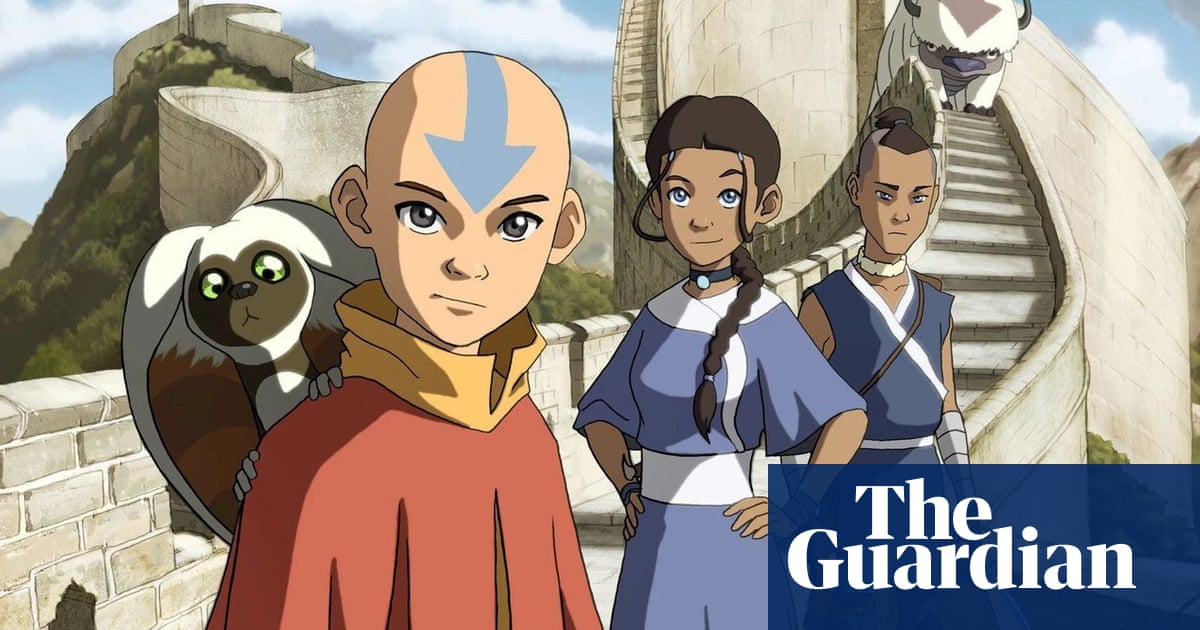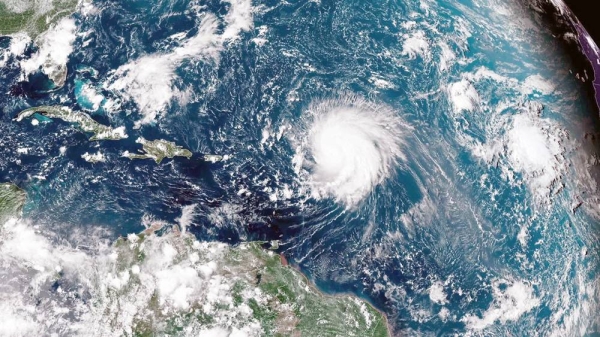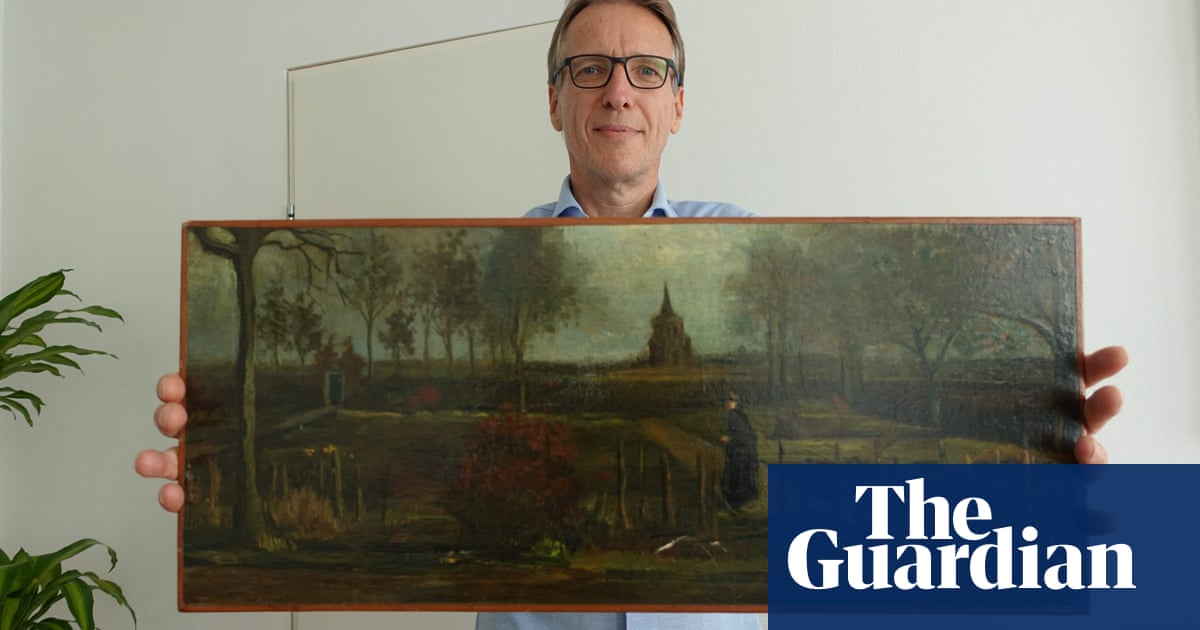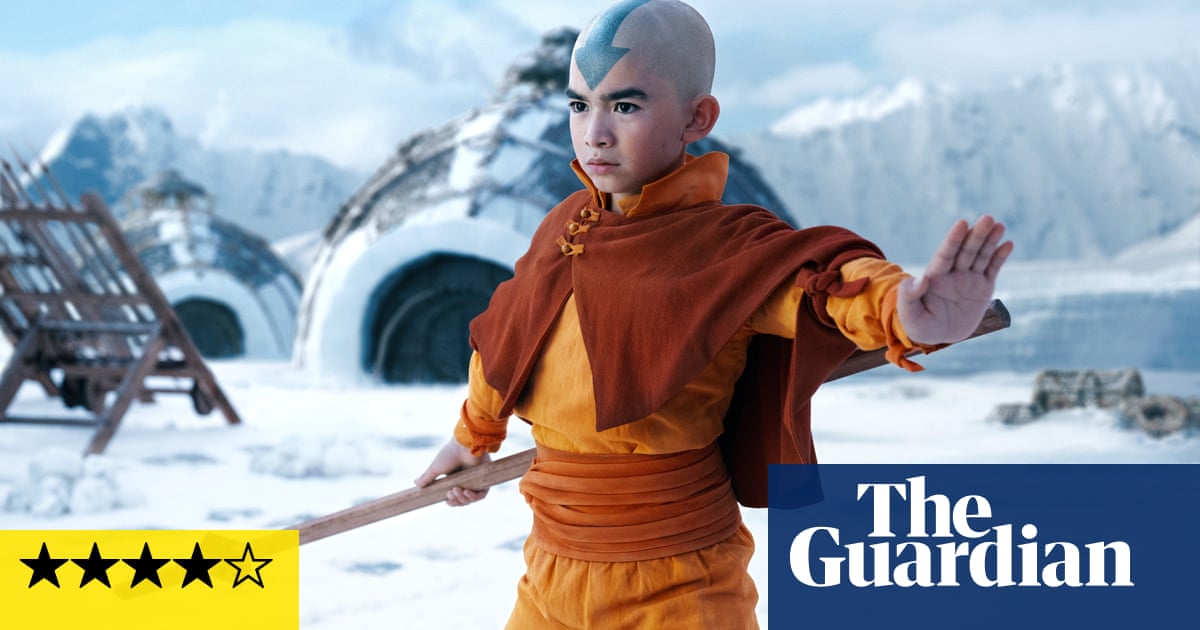
What makes animated series Avatar: The Last Airbender so unique? “Well, everything,” said Grey DeLisle, who voices the show’s big bad character, Azula. “I’m watching it right now with my nine-year-old and I’m just marvelling at how … ahead of its time it was.”
Indeed, behind the fantasy action show’s deceptively showy Nickelodeon facade lay a nuanced morality tale about totalitarianism, state-sponsored indoctrination, inequality and war. Heady themes, true, but they were so deftly delivered via a vast world of baroque storytelling that before we knew it, over three seasons between 2005 and 2008, an entire generation of kids had taken a crash course in ethics and political discourse.
Here’s the elevator pitch: four great nations exist in a fictional world, each aligned with one of the four elements – water, earth, fire and air. In this world, people called “benders” can manipulate whichever element’s nation they hail from. Once every generation, an Avatar is born who can control all four elements. Their job is to maintain harmony between the mortal and spirit worlds; once they die, they will be reincarnated, passing on the mantle to the next Avatar.
Sign up for the fun stuff with our rundown of must-reads, pop culture and tips for the weekend, every Saturday morning
When our hero, Aang, finds out he’s the reincarnated Avatar, he – quite reasonably – can’t handle the pressure. (He’s a 12-year-old, cut the kid a break.) Aang does a runner and locks himself in stasis inside an iceberg. The leaders of the Fire nation capitalise on his absence, spending the next 100 years establishing a sprawling totalitarian regime.
When two stragglers from a water tribe – Katara and Sokka – stumble upon Aang and wake him up, he hasn’t aged a day and is confronted with a world he effectively abandoned. Together (eventually) with Zuko, the exiled prince of the Fire nation who is desperate to win his tyrannical father’s approval, and Toph, a blind earthbender, the group embark upon a quest.
Thus begins a story about a bunch of young people desperately trying to speak truth to power in a world run by madmen and zealots. Relatable much?
In May 2020, during the frightening early months of the Covid pandemic, Avatar: The Last Airbender became available on Netflix in the US, debuting at No 1. Earlier this year, DeLisle, who voices Azula (the daughter of the power-mad emperor of the Fire nation and sister to Zuko) spoke with me about the significance of that time.
“I find it interesting that Avatar rose to the No 1 spot when we were all so … well, hurting,” she said. “It was such a tense time. And I definitely saw the Fire Nation in some people I know.
“But I think we all needed Avatar. It’s such a comforting show. It has so many truly great lessons. I think if you take those lessons and apply them in your life, there’s something … good in you.”
The idea that everyone has good in them is one of the core themes of Avatar. In fact, Zuko – Azula’s brother, tasked with murdering Aang at the outset – has one of the most compelling character arcs I’ve seen on television. Zuko is the product of his father’s brainwashing, steeped in hatred for an unseen enemy. Unlike his sister, however, Zuko is shepherded along by his wise, loving uncle, Iroh. Zuko is proof that no one is truly lost.
Avatar’s sequel TV series, The Legend of Korra – which ran for four seasons between 2012 and 2014 – tells the story of Aang’s successor, Korra, and is another tale with A-grade worldbuilding and bold examples of sexual and cultural representation from the same creators, Michael Dante DiMartino and Bryan Konietzko.
I’m still unsure about the necessity of the impending Netflix live-action adaptation of Avatar: The Last Airbender, set to premiere next year, but what I will say is this: avoid M Night Shyamalan’s 2010 utter misfire of a feature film, The Last Airbender. Stick to the animated outings which, as DeLisle pointed out, gained an ardent following with very little marketing.
“Nickelodeon hardly even did much with championing the show,” she said. “It was all word of mouth.”












